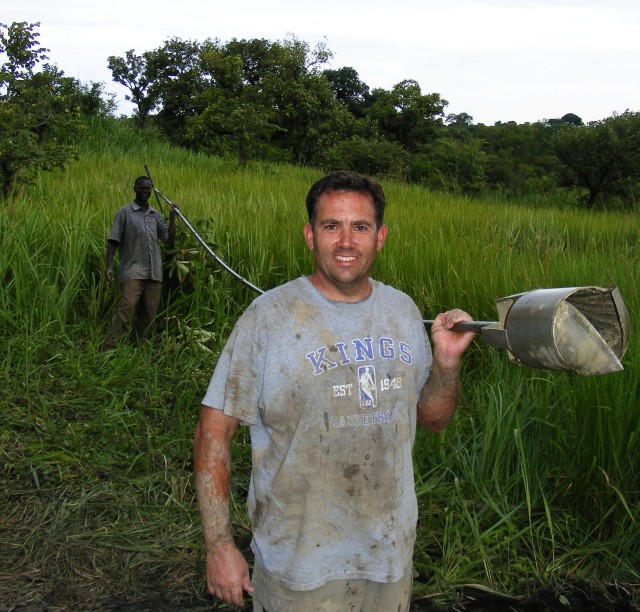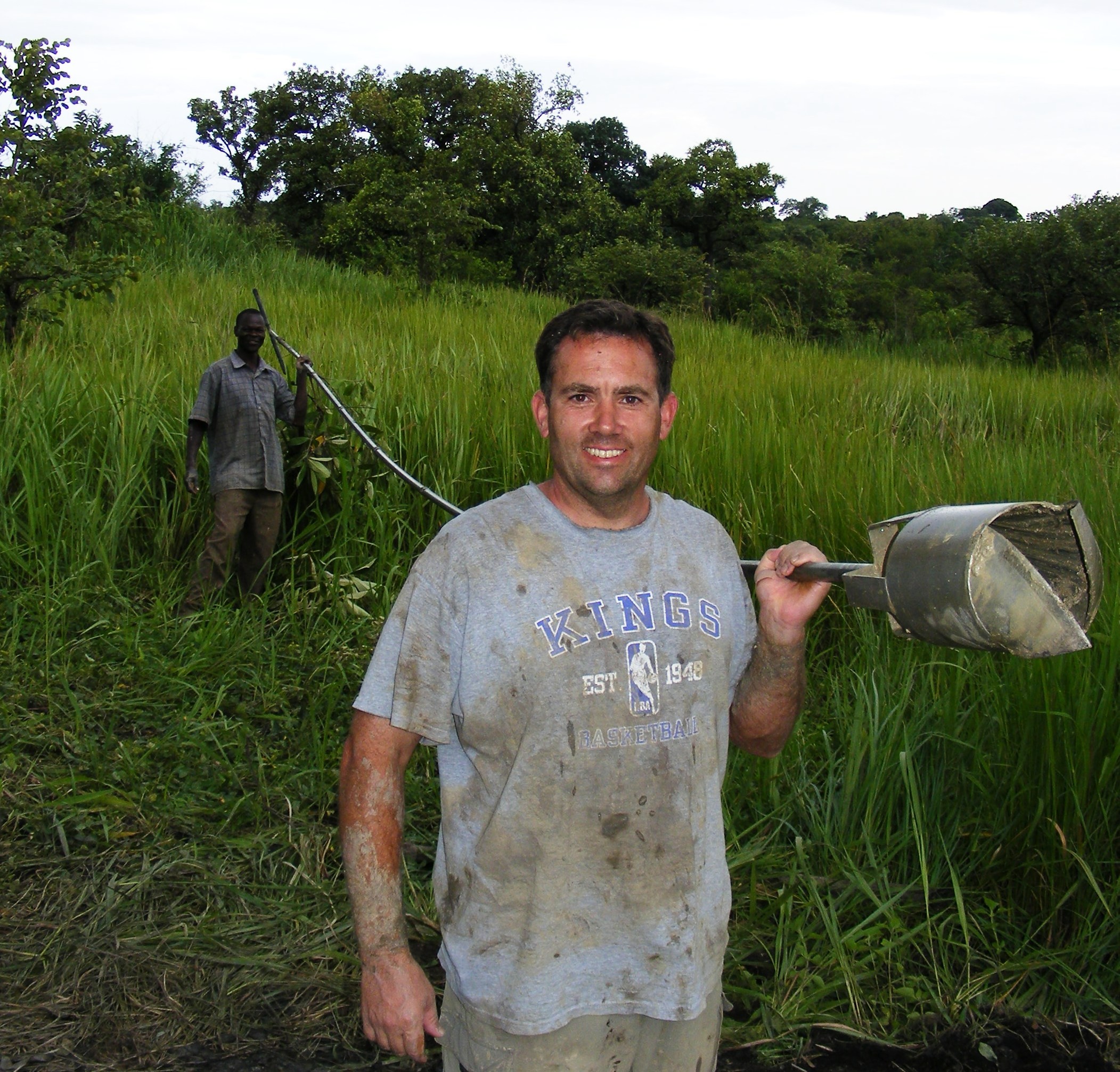Where are you going on vacation this year' To the Caribbean' To a cabin by a lake complete with water-skiing and a barbeque' How about to a remote African village with little to offer besides a toilet in your room and intermittent electricity' And forget about cable. That is what Tim Crummett, a Project Manager with the Military/HTRW Branch of the Sacramento District of the Army Corps of Engineers recently did.
Tim's background is geology and he had heard from a fellow geologist that there are numerous villages in Northern Uganda that are in desperate need of wells to provide protected sources of clean water. The trip was arranged and partially financed by Tim's church in cooperation with a church in Uganda. Tim used up vacation time to make the trip.
Tim's job, along with that of his associate and some local villagers, was to locate a site for the well that would produce enough clean water for a village of 100 or so people and then hand augur the well and install a manual pump. The well would end the necessity for village people to make a trek of 5 kilometers to obtain water.
Some health officials have estimated that more people die every year from diseases caused by ingesting dirty water than from all of the hurricanes, earthquakes, tsunamis, tornadoes and floods combined.
When Tim arrived, Uganda was recently recovering from a 20-year civil war between the sectarian rebel group know as the Lord's Resistance Army (LRA) and the Ugandan government. Throughout the conflict, the LRA was responsible for inflicting severe human rights violations on the people of Northern Uganda. People were just in the process of moving from huge refugee camps back to their villages.
"The hardest part was to locate the right location for the well," said Tim. "We covered some ground looking for the right clues: the presence of clusters of vegetation springs or streams, and geology that would provide the best conditions for sustained groundwater flow."
Before Tim could start work, he had to fly to London, endure an 8 hour stop over and then another long flight to Entebbe Airport in Uganda. After 3 days in Kampala, Uganda gathering supplies and equipment, Tim and others had a 6 hour drive by truck to the village of Gulu in northern Uganda.
To say that conditions in Gulu were primitive would be to vastly understate reality.
"We were lucky," said Crummett. "Our hotel room had its own toilet. Local residents either used a village latrine, or went to the bathroom in the bush. Electricity in our rooms was intermittent, at best."
"People were very friendly and pro-Western," said Crummett. "They were very hospitable and we shared many meals in huts with the Ugandans"
Villagers fed Tim and the team with a concoction called "posho," which consisted of cassava root, maize, salt and oil from a local nut. After having posho 3 times a day for two weeks, and combined with long work days, Tim lost 10 pounds.
As to why villagers couldn't dig wells themselves, Tim said: "They had no clue how to do it and no tools to do it with. Their main emphasis, on a daily basis, was to get enough to eat. There weren't many fat people in the villages."
Two local young men from the Gulu area worked the entire time with Tim and were trained on how to locate, hand augur, install a casing and pump for a shallow well. In the end a village was provided with a 32 foot deep well that produced four gallons a minute of clean water. The auguring equipment and tools where left with the church with the hope that as funding is raised, more pumps can be purchased and wells can be installed by the newly trained men. Despite the profound poverty and the hardships Tim witnessed, he is "encouraged by the spirit of the people he got to know and was glad to be used to make a difference in some of their lives."


Social Sharing